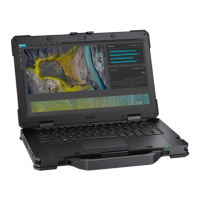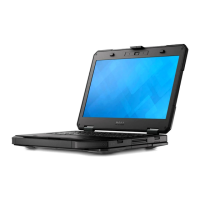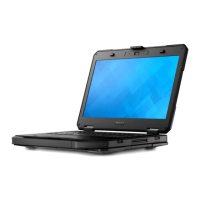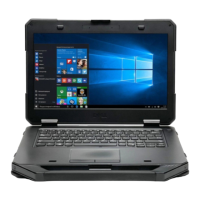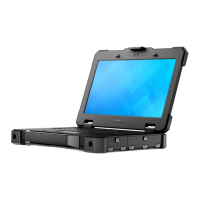USB Type-C and USB 3.1
USB 3.1 is a new USB standard. USB 3's theoretical bandwidth is 5 Gbps, while USB 3.1's is 10 Gbps. That's double the bandwidth, as fast
as a first-generation Thunderbolt connector. USB Type-C isn't the same thing as USB 3.1. USB Type-C is just a connector shape, and the
underlying technology could just be USB 2 or USB 3.0. In fact, Nokia's N1 Android tablet uses a USB Type-C connector, but underneath
it's all USB 2.0 — not even USB 3.0. However, these technologies are closely related.
Ethernet
The Intel I219LM Jacksonville WGI219LM family of Gigabit Ethernet controllers provides compact, single-port integrated physical layer
devices that connect to the Intel Skylake chipsets.
The Intel WGI219LM supports the latest Ethernet security standard known as MACsec3 (IEEE standard 802.1ae). The Intel WGI219LM is
the corporate LAN product with support for Intel vPro; technology, Intel AMT2, Energy Efficient Ethernet (802.3az), MACsec (802.1ae),
Intel SIPP, iSCSI Boot, Server OS support.
Product Features
General
• 10 BASE-T IEEE 802.3 specification conformance
• 100 BASE-TX IEEE 802.3 specification conformance
• 1000 BASE-T IEEE 802.3 specification conformance
• Energy Efficient Ethernet (EEE)
• IEEE 802.3az support [Low Power Idle (LPI) mode]
• IEEE 802.3u autonegotiation conformance
• Supports carrier extension (half duplex)
• Loopback modes for diagnostics
• Advanced digital baseline wander correction
• Automatic MDI/MDIX crossover at all speeds of operation
• Automatic polarity correction
• MDC/MDIO management interface
• Flexible filters in PHY to reduce integrated LAN controller power
• Smart speed operation for automatic speed reduction on faulty cable plants
• PMA loopback capable (no echo cancel)
• 802.1as/1588 conformance
• Power Optimizer Support
• Intel Stable Image Platform Program (SIPP)
• iSCSI Boot
• Network proxy/ARP Offload support
• Up to 32 programmable filters
• No support for Gb/s half-duplex operation
Security and Manageability
• Intel vPro support with appropriate Intel chipset components
Performance
• Jumbo Frames (up to 9 Kb)
• 802.1Q & 802.1p
• Receive Side Scaling (RSS)
• Two Queues (Tx & Rx)
Technology and components
39

